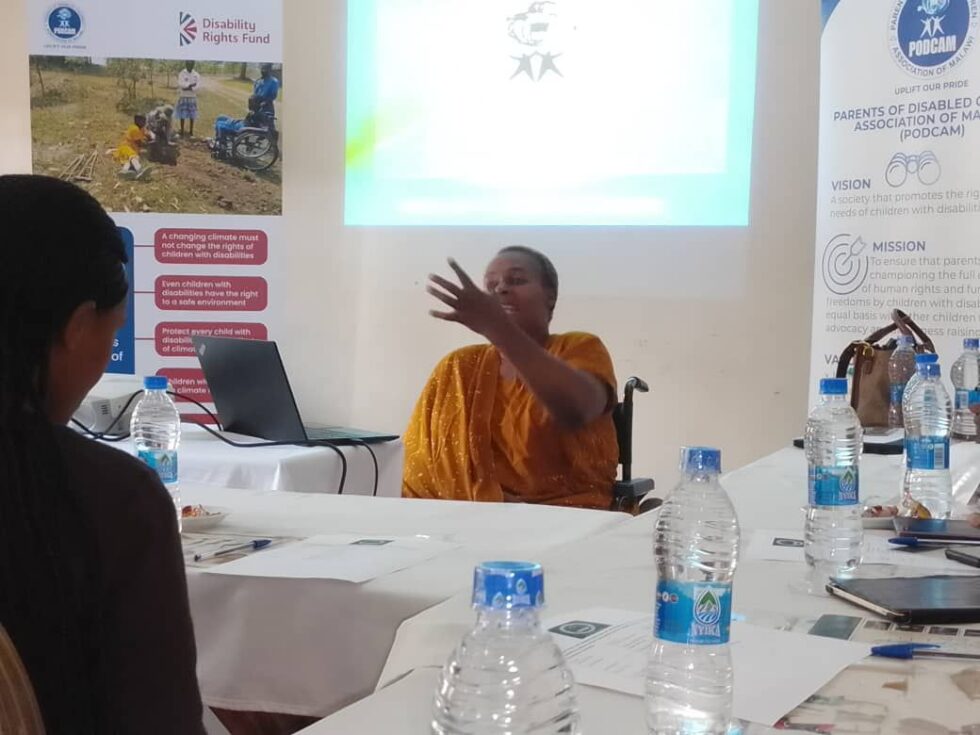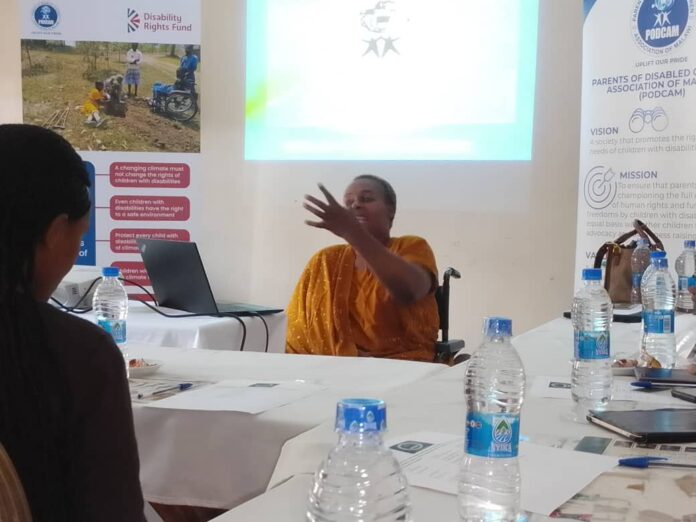By Rahim Abdul
Journalists in Malawi have been challenged to take a more active role in amplifying the voices of children with disabilities, particularly on issues related to climate change and natural disasters.
The call was made by Lyness Manduwa, Executive Director of the Parents of Disabled Children Association of Malawi (PODCAM), during a media workshop held in Blantyre on Saturday.
The workshop was part of the Disability Rights Fund (DRF) project, which seeks to highlight the unique challenges children with disabilities face during environmental calamities such as floods, cyclones and droughts.
According to Manduwa, climate-related disasters have been worsening in Malawi due to environmental degradation and global warming, leaving children with disabilities among the most vulnerable groups.

“When disasters strike, children with disabilities are often the most affected because they face multiple barriers such as lack of access to timely information, difficulties in mobility and discrimination,” Manduwa said.
“Journalists have the power to bring these stories to light and influence policies that can save lives,”she added.
She further explained that during events like Cyclone Freddy, many families with disabled children were left stranded without immediate help. Some were unable to reach evacuation centers due to inaccessible infrastructure or lack of appropriate transportation.
Grace Kachingwe, a mother from Bangwe Township in Blantyre who has a son with albinism, shared her personal experience, emphasizing the urgent need for accurate data collection.
“During disasters, authorities often do not know how many children with disabilities live in certain areas. This makes it difficult to provide targeted support,” she said.
“Having proper data would ensure that children like my son are included in evacuation plans and relief distribution,”she explained.
Climate experts warn that Malawi will continue to experience extreme weather events, including prolonged droughts and flash floods, due to climate change. For children with disabilities, this means increased risks of injury, disease outbreaks and psychological trauma, especially when humanitarian response systems fail to consider their unique needs.
Manduwa urged the government and non-governmental organizations to integrate disability-friendly strategies into climate adaptation and disaster response plans. This includes building inclusive evacuation centers, developing sign language-based early warning systems and training community volunteers on how to assist disabled children during emergencies.
She also challenged journalists to go beyond event reporting by investigating systemic barriers affecting disabled children and holding decision-makers accountable.
“Media coverage is not just about reporting tragedies; it should push for solutions,” she emphasized. “When journalists highlight these challenges consistently, policymakers will be compelled to act.”
Representatives from several media houses who attended the workshop pledged to prioritize disability issues in their reporting.
The initiative comes at a time when Malawi is still recovering from Cyclone Freddy, which displaced over half a million people and caused widespread devastation earlier this year. Disability rights advocates argue that lessons from such disasters should shape future policies to ensure no child is left behind when calamities strike.
The workshop concluded with a call for stronger collaboration between the media, civil society organizations and government agencies to build resilience among children with disabilities, ensuring they are protected and included in Malawi’s fight against climate change.



